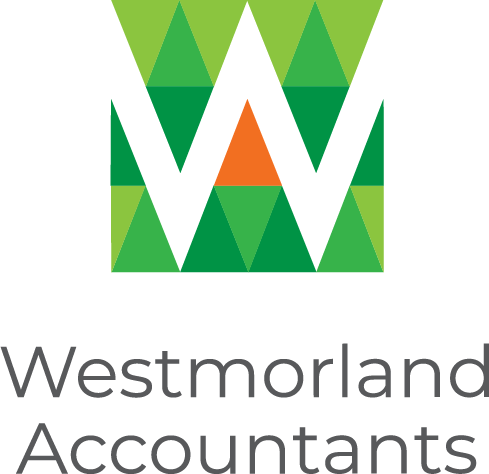
05 Nov Lockdown 2 government support
Today Rishi announced further financial help for businesses for the coming winter months.
Coronavirus Job Retention Scheme (CJRS) Extension March 2021
The Job Support Scheme is being postponed indefinitely and the furlough scheme will now continue until March 2021.
Employees will receive 80% of their current salary, up to £2,500 per month. The employer must pay all of the employer’s national insurance and employer’s minimum workplace pension contribution for hours not worked.
The first claims can be made from 8 am Wednesday 11 November. Claims made for November must be submitted to HMRC by no later than 14 December 2020. There will be flexibility in terms of using the scheme for employees including full and flexible furlough.
Neither the employer nor the employee needs to have previously claimed or have been claimed for under CJRS to make a claim under the extended CJRS (if other eligibility criteria are met).
An employer can claim for employees who were employed and on their PAYE payroll on 30 October 2020. The employer must have made a PAYE Real Time Information (RTI) submission to HMRC between 20 March 2020 and 30 October 2020, notifying a payment of earnings for that employee.
Employees that were employed and on the payroll on 23 September 2020 (the day before the Job Support Scheme announcement) who were made redundant or stopped working afterwards can be re-employed and claimed for. In this case, the employer must have made an RTI submission to HMRC from 20 March 2020 to 23 September 2020, notifying a payment of earnings for those employees.
In January CJRS will be reviewed to decide whether economic circumstances are improving enough to ask employers to contribute more.
SEISS Grant Extension
The grant that already exists for the self-employed will be extended for an additional six months.
The first grant will cover a three-month period from the start of November 2020 until the end of January 2021. It will be a taxable grant to cover 80% of trading profits, up to £7,500 and will be paid out in a single instalment covering the three months’ worth of profits. Applications for the grant will open from 30 November 2020.
An additional second grant will be available for self-employed individuals to cover the period from February to the end of April, although this may be adjusted to respond to changing circumstances. The government will review the level of support needed at a later date. Eligibility for the additional grants will be the same as the previous SEISS grants.
Business Grants for Businesses with Premises (Local Restrictions Support Grant – LRSG)
As previously announced for businesses forced to close due to local lockdowns, these grants will be available for businesses with properties that are now forced to close due to the national lockdown.
The size of the grant is determined by the rateable value of the property:
- For properties with a rateable value of £15k or under, grants to be £1,334 per month or £667 per two weeks;
- For properties with a rateable value of between £15k-£51k grants to be £2,000 per month or £1,000 per two weeks;
- For properties with a rateable value of £51k or over grants to be £3,000 per month or £1,500 per two weeks.
Funding will be provided to local councils to distribute, you should seek further information on how to claim from your local council.
Business Grants for Businesses without Premises (Additional Restrictions Grant – ARG)
Additional funding has been made available to local councils for discretionary grants for businesses that are required to close but do not pay business rates. It will be at your local councils’ discretion to choose how this money is distributed. More information will be available shortly.
Extension to the reduced rate of VAT for Hospitality and Tourism
The government has extended the temporarily reduced rate of VAT (5%) to tourist attractions and goods and services supplied by the hospitality sector. This relief came into effect on 15 July 2020 and will now end on 31 March 2021 (originally set to end on 12 January 2020) across the UK.
VAT Deferral New Payment Scheme
If you deferred VAT payments that were due between 20 March and 30 June 2020, then these payments need to be made to HMRC by 31 March 2021. If you are unable to make these payments then the New Payment Scheme will allow you to spread these payments over equal instalments up to 31 March 2022, interest-free. You will need to opt-in to the scheme but more information regarding this will be released in the coming months.
New Self Assessment Self-Serve Time To Pay Scheme
If you deferred paying your July 2020 Payment on Account, you will need to pay the deferred amount, in addition to any balancing payment and first 2020/21 Payment on Account, by 31 January 2021.
If you are unable to pay your Self-Assessment (SA) bill in full by 31 January 2021, you can set up a Time to Pay payment plan of up to 12 months online without speaking to HMRC. For SA tax debts of up to £30,000, then access to this Time to Pay facility will be available through GOV.UK and the taxpayer will get automatic and immediate approval. If your SA debts are over £30,000, or you need longer than 12 months to repay your debt in full, then the Time to Pay arrangement will still be available however you will need to call HMRC to arrange.
Extension of access to finance schemes
The deadline for arranging government backed loans has been extended to 31 January 2021. The four loans available to businesses are Bounce Back Loan Scheme (BBLS), Coronavirus Business Interruption Loan Scheme (CBILS), Coronavirus Large Business Interruption Loan Scheme (CLBILS) and the Future Fund.
For businesses that borrowed under the Bounce Back Loan scheme and borrowed less than the maximum (i.e. less than 25% of their turnover) then you will be able to top-up your existing loan. Businesses will be able to take-up this option from next week; you can make use of this option once.
Pay as you Grow for the Bounce Back Loan Scheme (BBLS)
Additional repayment flexibility has been provided for those businesses who have borrowed under the BBLS which include:
- the option to repay the loan over a period of up to ten years which will reduce average monthly repayments,
- the option to move temporarily to interest-only payments for periods of up to six months (an option which can be used up to three times);
- or to pause repayments entirely for up to six months (an option which can only be used once and only after having made six payments).
CBILS Loan extension
The government intends to allow CBILS lenders to extend the term of a loan up to ten years.

